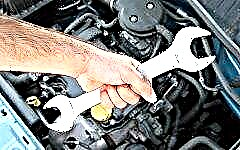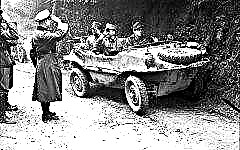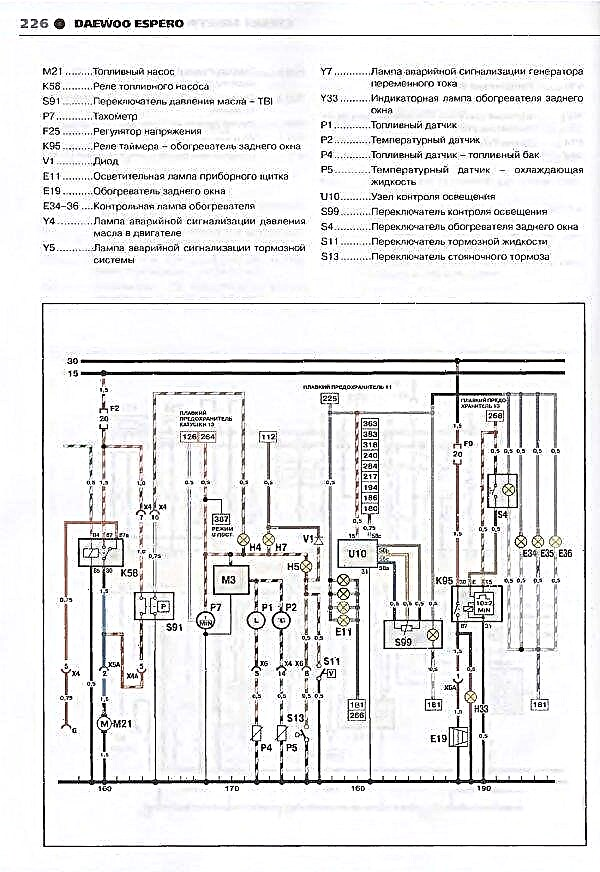

The content of the article:
- Varieties of oil filters
- The need to regularly change the device
- Collapsible filters
- Filtration degree
- Objective selection criteria
- Common filter defects
- Specialist recommendations
A car engine cannot exist without a lubrication system, otherwise it simply won't work. And for the motor to run reliably, the lubricant must be immaculately clean. It is for this purpose that a special oil filter is installed.
The machine oil, together with the filter, has important functions:
- cooling of parts of the internal mechanisms of the motor;
- cleaning from steel sawdust, carbon deposits and other debris;
- to form a kind of film that reduces the force of friction between rubbing parts;
- to suppress noise inside the engine;
- to clean the motor from unwanted impurities.
Varieties of oil filters

To choose the filter that you need, you need to understand their varieties. Let's consider some categories of oil filters:
- full-flow;
- part-threaded;
- combined.
Full flow oil filter. The name speaks for itself. This filter conducts the main oil flow from the oil pump through its entire structure. After that, the clean oil goes to those parts of the engine that need to be cooled and lubricated. The main mechanism in the operation of this filter is the bypass valve. It is he who stabilizes the oil pressure at the moment when it rises critically - from this, the oil seals and gaskets can be damaged. When choosing a full-flow oil filter, this circumstance must be borne in mind. For example, if the filter is completely clogged and oil has stopped flowing into the engine, the bypass valve opens and the oil will still pass into the engine. Yes, it will be contaminated, unfiltered oil, but, nevertheless, oil on which the engine can hold out for some time and not undergo damage.
Partial flow oil filter. Cleans oil at a slower rate than full flow. The reason lies in the fact that the grease penetrates through the filter only in one circuit, and in the other it flows freely between the oil pump and the rubbing motor units. As already mentioned, this kind of cleaning takes a long time, but at the same time the oil is cleaned much better, reducing the likelihood of a decrease in oil pressure to a minimum.
Combined oil filter. Manufactured as a kind of hybrid of half-flow and partial-flow filters. Filters of this kind purify the oil more efficiently and, accordingly, significantly increase the service life of both the oil and the filter.
Of all three types of filters, the highest quality oil purification is carried out by a partial-flow filter. Therefore, such filters are preferably used for vehicles of active use: cargo transportation for construction, passenger flights, etc. And if you use just this kind of technique, then you will definitely decide the question of choosing an oil filter.
The need to regularly change the device

Oil filters of any type must be changed regularly after a certain amount of vehicle mileage. If this is not done, then, as a result, the lubricating flow will be disrupted, and the pressure in the motor will begin to decrease. As a result, the device will no longer purify oil, and metal filings and other debris will begin to penetrate into the engine, shortening the life of the engine.
Employees of companies that produce filters advise that this device be replaced after about 8000-10000 km of run.

The modern oil filter is a monolithic construction that cannot be disassembled. The filter body is metal, and a paper filter filler is mounted in the body itself. In addition, there are two valves on the inside of the filter:
- Anti-drain, designed to block the return stroke of the lubricant flow. It also serves to preserve oil inside the filter when the engine is not running. This is necessary for operational lubrication of all parts of the engine when it is started.
- Bypass valve, which serves to maintain lubricant flow in the event of a sticking anti-drain valve or a dirty filter. In addition, the bypass valve can operate with a high viscosity of oil if it is difficult to penetrate the filter.
Collapsible oil filters

We talked about oil filters that don't understand. However, apart from them, there are also collapsible filters. In them, the paper filler can be replaced. These filters have much more advantages than non-collapsible filters, which makes them very popular.
This filter insert is considered one of the most efficient oil filters. Its main advantage is its lower price compared to non-separable counterparts. At the same time, the quality of filtration is not lower at all. And this is all due to the ability to replace only the filter element in such a filter.
To replace the filter element, we open the case of the product, and then we can easily and simply make a replacement.
Another plus is the completely simple and affordable disposal methods. These filters are often the primary choice of many drivers.
All oil filters, regardless of the type of design, are completely identical. They differ only in manufacturing technology and in the materials used. The main part of any filter is the filter element itself, made of special paper.
However, it should be noted that for the production of such a paper that would meet all the requirements, a large investment is required. For this reason, not many firms can afford it. Therefore, those companies that produce this paper try to do it efficiently, carefully observing all the requirements of the technological process. These companies are well-known, so they can always be distinguished from unscrupulous manufacturers who produce low quality products.
The production of high quality paper for oil filters is indeed considered a very expensive process. The reason is that this paper must meet a number of requirements:
- withstand all temperature conditions during the operation of the motor;
- qualitatively clean all types of engine oil of any viscosity;
- retain foreign particles of different hardness;
- have high chemical resistance.
If the filter contains poor quality paper, it will not have the properties listed above, and subsequently the engine with such a device will be prone to rapid wear, which will lead to its breakdown and premature overhaul.
Filtration degree

In addition to the above points, the oil filter has a very important parameter - the degree of filtration. Today, there are two characteristics of the degree: nominal and absolute. The nominal filtration is determined by the retention of foreign debris up to 95%. Absolute filtration traps absolutely all types of foreign particles.
Filters with varying degrees of filtration are used depending on the purpose of technical devices. For example, in hydraulics, which is installed on special-purpose equipment, the oil filter must retain solid particles in the size of 30-40 microns. In cars, this number cannot be less than five micrometers.
Note: It is necessary to know that oil filters with highly filtered inserts can to a certain extent retard the free flow of oil.However, despite their difficult-to-pass ability, they provide high quality cleaning, and this, accordingly, has a beneficial effect on the durability of the internal combustion engine.
Objective filter selection criteria

When buying an oil filter, carefully inspect the housing, which must be strong enough. This is necessary so that the device can withstand a sudden change in pressure, does not corrode and is not damaged as a result of vibration, otherwise oil may leak from the system.
The valve and the sealing lip are the main elements that ensure the tightness of the filter, but the quality of these parts can only be calculated by experienced professionals. Therefore, when purchasing a filter, be sure to ask for a quality certificate.
Producer orientation also matters. Quite often, customers can be fooled by logos like "Made for Germany" or "Japan quality". When buying such products, know that their homeland is not Germany or Japan, but China. At best, this type of product meets only the most minimal quality conditions. Therefore, it is better not to buy such filters.
Companies that produce high quality goods leave on the packaging not only the name of the company, but also all their details, and the telephone numbers of the help desk as well.
There are many other ways to cheat consumers. For example, a would-be manufacturer registers his “brand” in some reputable European country, and then on absolutely legal grounds, hiding behind a European brand, begins to sell Chinese-made products from his hands.
Therefore, always check the facts of the product certification carried out, as well as the manufacturer's details. This will serve as a reliable guarantee that you do not buy a cheap Chinese fake, and a high-quality filter will be installed on your car.
If you are not satisfied with the certificate, then you can take information about the quality of the product from the quality control data used by the manufacturers themselves. Companies with global brands have a product manufacturing process that fully complies with international ISO-9001 standards.
Common filter defects

However, no matter how carefully you choose the filter, there may not be an absolute guaranteed serviceability. For example, such a disadvantage as the loss of elasticity of the rubber part of the anti-drain valve is most common.
This defect can be detected at the moment the ignition is turned on, when a lamp flashes on the panel for 20-40 seconds, signaling an emergency oil pressure. The secret is that in the absence of the necessary elasticity of the anti-drain valve when the engine is not running, oil begins to leave the filter container. The lamp goes out only after the lubricant mass fills the entire system and the pressure is normalized.
Of course, there are many other reasons for a decrease in oil pressure, but if it is the weak elasticity of the anti-drain valve that is to blame, then it is better to replace the filter with a new one.
Many car enthusiasts often believe that the filter does not play a big role for the car and therefore are content with cheap samples from dubious manufacturers. This should not be done, otherwise serious malfunctions may occur inside the motor, which will cost you dearly.
In addition, if the insert in the filter is of poor quality, due to the high oil pressure, it can deform or even break and clog the channels of the lubrication system with scraps. As a result, the engine will no longer receive lubrication at all, which can also lead to breakdown.
Specialist recommendations

Most professionals advise buying filters made only by renowned global manufacturers. After all, the duration of the car engine depends on the functioning of the entire lubrication system.
Here are the main signs by which you can distinguish good filters from defective ones:
- insufficient thickness of filter paper;
- the bypass valve is triggered at low pressure, as a result of which crude oil enters the engine;
- poor tightness of the anti-drain valve. When the engine is not running, this valve, with poor tightness, allows oil to pass through, which begins to drain into the crankcase;
- poor quality filter paper tears and clogs the lubrication channels.
Choosing the products of this or that company, you will eventually develop a certain experience of preference for manufacturers of the highest quality products. But keep in mind that times are changing and science continues to evolve. Stay tuned for new developments, which may include new world-class oil filter manufacturers.











